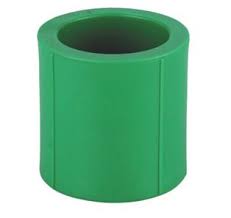Aug . 12, 2024 14:26 Back to list
High-Density Polyethylene Pipes Suitable for Drinking Water Supply and Distribution Systems
HDPE Pipes for Drinking Water A Sustainable Solution
High-Density Polyethylene (HDPE) pipes have increasingly become a favored choice for drinking water distribution systems around the world
. As the demand for safe, reliable, and affordable potable water continues to rise, HDPE pipes offer numerous advantages that make them an essential component of modern water infrastructure.Durability and Longevity
One of the primary reasons HDPE pipes are widely used for drinking water distribution is their exceptional durability. Made from high-density polyethylene, these pipes can withstand extreme pressure and are resistant to corrosion, ensuring a long lifespan—often exceeding 50 years. Unlike traditional materials such as metal or concrete, HDPE does not rust or degrade over time, making it an ideal choice for long-term applications. This durability not only reduces the need for frequent replacements but also minimizes maintenance costs, benefiting municipalities and consumers alike.
Chemical Resistance
HDPE pipes are highly resistant to a wide range of chemicals, including those commonly found in drinking water. This characteristic is particularly important as water sources can sometimes contain harmful contaminants that may affect the integrity of the pipe material. HDPE's resistance to both acidic and alkaline substances ensures that the quality of drinking water remains unaffected, providing consumers with safe and clean water. This feature is crucial for maintaining public health standards and adhering to regulatory requirements.
Lightweight and Easy to Install
hdpe pipe for drinking water product

Another significant advantage of HDPE pipes is their lightweight nature, which facilitates easier handling and installation. Unlike heavier materials that require specialized equipment for transportation and installation, HDPE pipes can be easily maneuvered by a smaller crew. This not only accelerates the installation process but also reduces labor costs. Additionally, HDPE pipes can be joined using various methods, such as butt fusion and electrofusion, which creates a seamless bond. This reduces the risk of leaks, further enhancing the system's reliability.
Environmental Benefits
In an age where sustainability is paramount, HDPE pipes present an eco-friendly option for water systems. The production process of HDPE is less energy-intensive compared to traditional plumbing materials, leading to a lower carbon footprint. Moreover, HDPE is 100% recyclable, allowing for a more sustainable life cycle. Once the pipes reach the end of their service life, they can be recycled into new products, reducing waste and conserving resources. This aligns with global initiatives to promote sustainability and responsible resource management.
Cost-Effectiveness
Investing in HDPE pipes can be more cost-effective in the long run. Despite a potentially higher initial investment compared to some alternatives, the long lifespan, reduced maintenance needs, and lower energy consumption during installation typically lead to significant savings over time. These factors contribute to the overall value of HDPE in drinking water applications, offering municipalities a reliable solution without overstretching budgets.
Conclusion
In summary, HDPE pipes represent a modern, sustainable solution for drinking water distribution systems. Their durability, resistance to chemicals, lightweight nature, environmental benefits, and cost-effectiveness make them an ideal choice for municipalities seeking to enhance their water infrastructure. As communities worldwide strive to provide safe and accessible drinking water to their residents, HDPE pipes will play a crucial role in meeting these needs while promoting sustainability and efficiency. Their adoption marks a significant stride toward a future where clean water is available to all, echoing the importance of infrastructure innovation in our ever-evolving world.
-
HDPE Compression Fittings Durable & Reliable PP Compression Fittings Supplier
NewsJun.24,2025
-
High-Quality PVC Borehole Pipes - Durable Pipes from Leading PVC Manufacturer
NewsJun.10,2025
-
High-Quality PVC Borehole Pipes Types of Pipes by Leading PVC Manufacturer
NewsJun.10,2025
-
Durable Screen Pipes & HDPE-PVC Connectors Expert Solutions
NewsJun.10,2025
-
Premium HDPE Conduit Pipes Durable & Corrosion-Resistant
NewsJun.10,2025
-
Premium HDPE Elbows Durable Corrosion-Resistant Piping Solutions
NewsJun.09,2025

